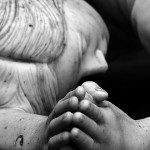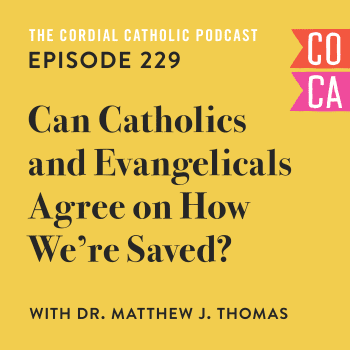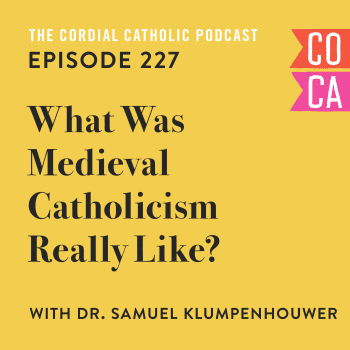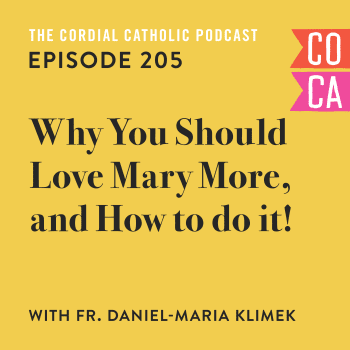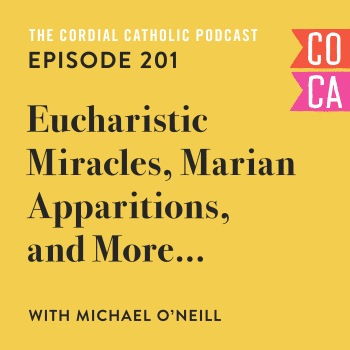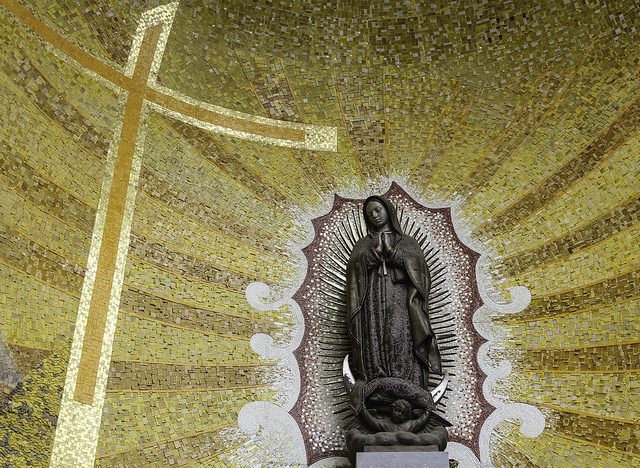
As an evangelical Protestant it would’ve surprised me, greatly, to learn that some Christians believe Mary was “ever virgin.” Maybe I was sheltered, but I would’ve reacted with equal credulity if you had told me that Joseph, her spouse, was believed to be a unicorn.
The perpetual virginity of Mary just wasn’t on my radar.
But, as I began to explore the Catholic Church and to dig into its rich treasury of Marian doctrine the discovery of her alleged perpetual virginity seemed, by then, to be both an easy claim to defend and an easy criticism to deflect.
Far cry from unicorns.
After all, even a cursory scratching of the surface led me to discover that the doctrine of the perpetual virginity of Mary was held persistently by the Church and later, during the Reformation, it was actually defended by Martin Luther and the early reformers. Zwingli even included the Hail Mary in his earliest books of common prayer.
Objections to the Perpetual Virginity of Mary
I’ve encountered a number of cradle Catholics who find it very hard to understand the Protestant objection to anything that whiffs of Marian theology. Frankly, I have a difficult time understanding it too. But as an evangelical it was ingrained in me, from early on in my rather piecemeal theological education, that idolatry was simply the worst kind of sin imaginable.
But the perpetual virginity of Mary touches nowhere on idolatry, in reality, and, in the end, Catholics don’t worship Mary. Still, our fear of getting anywhere close to anything that smells like idol worship might scare a great many earnest, honest evangelicals away from looking deeper into Marian theology.
Primarily, as a Protestant, I would’ve objected to Mary’s perpetual virginity on two accounts. First, the New Testament (at least the English translations I’ve read) clearly indicate that Jesus had brothers. And, second, Matthew is clear in his gospel that Joseph didn’t know Mary “until” Christ was born.
It’s clear, I would’ve argued, that Mary and Joseph had subsequent relations and that Jesus had siblings.
Clear as mud.
In fact, on the first objection, Catholic scholars argue that the term “brothers” as translated from the original text could also mean “cousins.” Or, as another popular theory runs, it could indicate Joseph’s children from a previous marriage. This would explain why, later in the gospel accounts, some of Jesus’s so-called brothers rebuke him, an act which would’ve been incredibly inappropriate for devout Jews of Jesus time (to rebuke their older sibling, even half-sibling).
The second objection, equally, is fairly simply addressed by examining how the word “until” is used elsewhere in the Bible or in plain language. If I write, “Penny was a good dog until she died,” it isn’t to imply that after her death she suddenly became a pooch out of control.
Likewise, to say that Joseph didn’t know Mary “until Christ was born” doesn’t automatically presume that after he was born, Joseph and her had relations. In fact, there is good evidence to indicate that Mary’s surprise at Gabriel annunciation indicates she had actually pledged to be a virgin even after marriage.
But, good contextual research is fruitful as well. 1 Corinthians 15:25 says,
For he must reign until he has put all his enemies under his feet.
Could any right-thinking Christian make a legitimate claim that what Paul is saying in this context is that Christ will suddenly cease His reign as soon as his enemies are subdued?
By no means!
Perpetual Support for the Perpetual Virgin
But even if we hasten to dig into the objections to Mary’s perpetual virginity the true fruit of this theology lies in its rich history of support and what, eventually, convinced me firmly of Mary’s perpetual virginity is the long, long line of Christians who have roundly subscribed to her unending virginity.
In fact, remarkably, it was as early as the 4th century when the Church—remember, this is the united Christian Church—condemned attacks on Mary’s perpetual virginity which were brought based on the very same objections we discussed above.
As early as the 4th century, a theology of Mary’s perpetual virginity was so concrete that attacks against it were roundly and universally defended.
From there, in the 5th century, St. Augustine, beloved by Catholics and Protestants alike spoke of Mary saying,
A Virgin conceiving, a Virgin bearing, a Virgin pregnant, a Virgin bringing forth, a Virgin perpetual. Why do you wonder at this, O man?
Did Augustine know something we don’t know, or knew something we’ve forgotten?
Truly.
But what’s most remarkable, and a true testament to just how wide-spread the believe of an “ever virgin” Mary was, is in the response of the Early Protestant Reformers. A group that, universally, accepted this theology and—in the case of Martin Luther—defended it strongly.
Indeed, amongst these Early Reformers all of Luther, Calvin, Zwingli, and John Wesley came out in clear support of Mary’s perpetual virginity even while shedding other seemingly objectionable elements of the Christian Church they were separating themselves from.
Incredibly, while the spiritual and theological fathers of modern day evangelical Protestantism held and even defended the perpetual virginity of Mary the notion—as it was for me—was the furthest thing I could’ve imagined as a devout evangelical.
But it’s right there, in the pages of history.
What We Lost, And What Wasn’t Invented
Too often as an evangelical Protestant I would’ve objected to Catholic theology—especially Marian doctrine—on the grounds that it had been “invented” by the Church.
In reality, nothing could be further from the truth.
The belief that Mary remained a virgin after the birth of Christ was widely held by the Christian Church well before there was any distinction between Catholic and Protestant—well before, even, the distinction between Catholic and Orthodox and first split the Church.
Mary’s status as “ever virgin” was so roundly held that in the 4th century those that would challenge it, based on the very same arguments that are batted around today were condemned as heretics.
The united Christian Church condemned as heretics those that thought Mary may have ever had relations.
But it was once I began to read about Catholicism from Catholics authors themselves that the pieces began to fall into place, on Mary and on any number of questions and concerns I’d had about the faith. In the case of Mary, belief in her perpetual virginity had been, itself, perpetually held from the early days of the Christian Church.
Not only that, it was held even by the Early Reformers at the time of the Protestant Reformation. None of them wanted to jettison it at all and if we’re to be Christians firmly rooted in our collective history, in reality, than neither should we.


